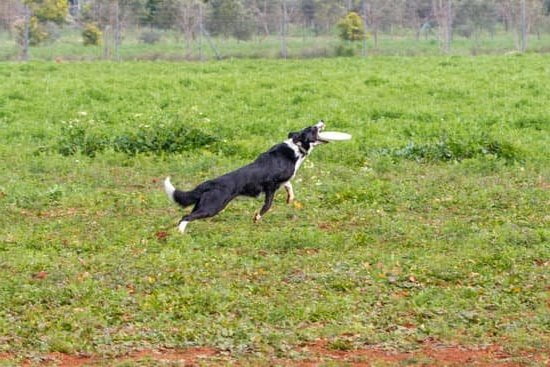Can skunks be trained like dogs? This intriguing question has sparked the curiosity of many animal lovers and enthusiasts. While dogs are known for their trainability and companionship, skunks have often been overlooked in the realm of pet training. However, recent interest in exploring the possibilities of training skunks has led to discussions on whether these unique creatures can indeed be taught tricks and behaviors similar to those of dogs.
Skunks possess a fascinating mix of social behavior, intelligence, and instinctual traits that make them intriguing candidates for training. Understanding their natural instincts and behaviors is crucial in determining the feasibility of training them like dogs. By delving into the intricate social dynamics of skunks, we can gain insight into how they may respond to various training methods and stimuli.
Comparing the intelligence of skunks with that of dogs provides valuable insights into their potential for learning and adapting to different situations. While dogs are renowned for their cognitive abilities and problem-solving skills, skunks also exhibit signs of intelligence that can be harnessed through proper training techniques. Exploring the cognitive capabilities of skunks opens up new possibilities for enhancing their skills and behaviors through dedicated training efforts.
The Social Behavior of Skunks
Skunks are known for their unique appearance and potent odor, but not many people are aware of their social behavior and natural instincts. Understanding the social behavior of skunks is crucial when considering whether they can be trained like dogs. While skunks may not have the same level of sociability as dogs, they do exhibit certain behaviors that can indicate their potential for training.
Solitary Creatures
Skunks are generally solitary creatures, preferring to live and hunt alone rather than in packs like dogs. This solitary nature can present a challenge when it comes to training them, as they may not be as eager to please or seek human companionship. However, this does not mean that skunks are incapable of forming bonds with humans or learning new behaviors.
Communication Signals
Skunks communicate through a variety of signals, including vocalizations, body language, and scent glands. Understanding these communication signals can help in training skunks effectively. For example, recognizing when a skunk feels threatened or anxious based on its body language can help trainers adjust their approach to avoid stress and ensure progress in training sessions.
Natural Instincts
Skunks have natural instincts for survival, including digging for food, marking territory with scent glands, and being nocturnal creatures. These instincts can influence their behavior during training sessions and should be taken into consideration when developing a training plan. By understanding their natural instincts and behaviors, trainers can better tailor their techniques to suit the needs of the individual skunk being trained.
Skunk Intelligence
Skunks are often underestimated when it comes to their intelligence. While they may not have the same level of trainability as dogs, they are still quite intelligent and can learn a variety of behaviors. It is essential to understand that skunks have different natural instincts and behaviors compared to dogs, which can affect their ability to be trained in the same way.
In comparing skunk intellect with dogs, it’s important to consider their social behavior and how they interact with their environment. Skunks are known for being curious animals, constantly exploring and investigating new things. This curiosity can work in your favor when training them, as they are more likely to be engaged and interested in learning new tasks. Additionally, skunks are highly adaptable creatures, able to adjust their behavior based on the situation at hand.
When it comes to training techniques for skunks, positive reinforcement is key. Just like with dogs, rewarding desired behaviors with treats or praise can help reinforce those actions.
Skunks respond well to consistency and patience in training, so establishing a routine and sticking to it can lead to success. It’s important to keep in mind that while skunks can be trained to some extent, they do have inherent wild instincts that may not always align with what we expect from a domesticated animal.
| Skunk Behavior | Intelligence Comparison |
|---|---|
| Curious nature | More independent than dogs |
| Adaptable behavior | Requires different approach than dog training |
Training Techniques
Skunks are fascinating creatures that have long been misunderstood and underestimated. Many people wonder if skunks can be trained like dogs, and the answer is both yes and no. While skunks do possess a level of intelligence that allows for basic training, they are not as naturally inclined to follow commands and please humans as dogs are. However, with patience, consistency, and the right techniques, it is possible to train a skunk to some extent.
When considering training techniques for skunks, it is important to understand their natural instincts and behaviors. Skunks are curious animals that rely heavily on their sense of smell for survival. They are also known for their defensive mechanism of spraying when threatened or scared. Therefore, any training approach must take these factors into account in order to effectively communicate with and teach a skunk.
One method that can be effective in training skunks is using positive reinforcement. By rewarding desired behaviors with treats or praise, skunks can learn to associate those actions with pleasant outcomes. This can help motivate them to repeat the behavior in the future. It is crucial to be patient and consistent when using positive reinforcement with skunks, as they may not respond as quickly or eagerly as dogs do.
| Training Techniques | Key Points |
|---|---|
| Natural Instincts | Understanding their curious nature and defensive mechanisms |
| Positive Reinforcement | Rewarding desired behaviors with treats or praise |
Using Positive Reinforcement
Positive reinforcement has been proven to be an effective technique when it comes to training animals, including skunks. By rewarding desired behaviors with treats, praise, or other positive stimuli, trainers can create a positive association in the skunk’s mind and encourage them to repeat those behaviors. Here are some ways in which positive reinforcement can be used effectively in skunk training:
- Using treats: Skunks, like many animals, respond well to food rewards. By offering small treats as a reward for performing a specific behavior, such as coming when called or using a litter box, trainers can motivate skunks to learn and obey commands
- Verbal praise: Skunks can respond positively to verbal cues and praise. By speaking in an encouraging tone and praising the skunk when they perform the desired behavior, trainers can reinforce good habits and improve their training progress.
- Clicker training: Clicker training is another form of positive reinforcement that can be effective in teaching skunks new behaviors The sound of the clicker marks the exact moment when the skunk performs the desired action, making it easier for them to understand what they are being rewarded for.
Overall, positive reinforcement can definitely play a significant role in successfully training skunks like dogs. By using consistent rewards and praise, trainers can establish a strong bond with their skunk, increase their motivation to learn, and achieve impressive results in their training efforts.
Mistakes to Avoid
Skunks are not typically thought of as traditional pets that can be trained like dogs. However, with the right approach and understanding of their behavior, it is possible to teach them certain behaviors. In this section, we will discuss some common mistakes to avoid when attempting to train a skunk.
1. Not Understanding Skunk Behavior: One of the biggest mistakes people make when trying to train a skunk is not taking into account their natural instincts and behaviors. Skunks are independent creatures and may not respond well to traditional dog training methods. It is essential to understand their social behavior, communication signals, and body language before attempting to train them.
2. Using Punishment-Based Techniques: Skunks, like dogs, respond best to positive reinforcement rather than punishment-based techniques. Using punishments such as yelling or physical force can actually backfire and make the skunk fearful or aggressive. Instead, focus on rewarding good behavior with treats or praise to encourage them to repeat those actions.
3. Expecting Quick Results: Patience is key when training any animal, including skunks. It may take time for a skunk to learn new behaviors or commands, so expecting immediate results can lead to frustration for both you and the skunk. Consistency, repetition, and positive reinforcement are essential components of successful training sessions.
By avoiding these common mistakes and implementing proper training techniques, it is possible to teach a skunk like you would a dog. While they may not be as responsive or obedient as dogs, with time and effort, you can successfully train a skunkto perform certain behaviors and tricks. Remember that each skunk is unique in its temperament and learning pace, so adjusting your approach accordingly is crucial for successful training sessions.
Real Life Examples
The Story of Flower the Skunk
One renowned success story of training a skunk like a dog comes from the tale of Flower, a domestic skunk who defied stereotypes by becoming an obedient and loving companion. Flower’s owner, Wendy Diamond, took on the challenge of training a pet skunk after being inspired by her love for dogs and her belief in positive reinforcement-based training methods.
Through consistent training and patience, Flower learned to respond to basic commands, such as sit, stay, and even play fetch just like a dog would. This heartwarming story showcases that with dedication and proper techniques, skunks can indeed be trained to exhibit similar behaviors as dogs.
Benefits of Training Skunks Like Dogs
Training skunks like dogs not only demonstrates their adaptability and intelligence but also fosters a deeper bond between human and animal. By engaging in training sessions with their pet skunks, owners can establish trust, communication, and mutual respect. Furthermore, teaching skunks obedience skills through positive reinforcement can enhance their mental stimulation and overall well-being. These success stories highlight how training skunks like dogs can lead to fulfilling companionship and joyful interactions.
Overcoming Challenges in Skunk Training
While there are success stories of skunks being trained like dogs, it is essential to recognize the challenges that may arise during the training process. Skunks have unique natural instincts and behaviors that differ from dogs’, posing difficulties in certain training aspects. It is crucial to understand each individual skunk’s personality and adjust training techniques accordingly to ensure successful outcomes.
Additionally, consistency, patience, and understanding are key elements in overcoming obstacles when attempting to train skunks. By acknowledging these challenges proactively, pet owners can navigate through them effectively while enjoying the rewarding experience of having a well-trained skunk companion.
Conclusion
In conclusion, the question “Can skunks be trained like dogs?” remains a topic of interest and curiosity among animal lovers and enthusiasts. While skunks do have their own unique social behaviors and instincts that differ from dogs, research has shown that they can indeed be trained to some extent. By understanding the natural behaviors and intelligence of skunks, it is possible to develop training techniques that cater to their specific needs.
When comparing the intelligence of skunks with dogs, it is important to acknowledge that while they may not possess the same level of trainability as dogs, they are still capable of learning basic commands and behaviors. Through patience, consistency, and positive reinforcement, skunks can be taught a variety of tricks and tasks. Utilizing methods such as clicker training and rewards can help in shaping their behavior effectively.
While there may be challenges and common mistakes when training skunks, success stories exist where individuals have been able to train these unique animals like dogs. With dedication and a deep understanding of their behavior, skunk owners have been able to establish a bond based on trust and respect.
Overall, while training a skunk may require more effort than training a dog, with the right approach and techniques, it is indeed possible to enjoy the companionship and obedience of these fascinating creatures.
Frequently Asked Questions
Are Skunks Trainable?
Skunks are not typically considered to be easily trainable animals like cats or dogs. While some people have had success with training skunks, they are known for being independent and can be quite stubborn. It may be challenging to train a skunk compared to other more common household pets.
Can You Domesticate a Wild Skunk?
Domesticating a wild skunk is generally not recommended due to their natural instincts and behaviors. Wild skunks are naturally wary of humans and may exhibit defensive behavior, such as spraying or biting, when feeling threatened or scared. It is best to leave wild skunks in their natural habitat.
Can You Train a Pet Skunk?
Training a pet skunk is possible, but it requires patience, consistency, and positive reinforcement techniques. Pet skunks can learn basic commands and behaviors through proper training methods. It is important to understand the specific needs and behaviors of pet skunks before attempting any training sessions to ensure both the animal’s well-being and your safety.

Welcome to the blog! I am a professional dog trainer and have been working with dogs for many years. In this blog, I will be discussing various topics related to dog training, including tips, tricks, and advice. I hope you find this information helpful and informative. Thanks for reading!





